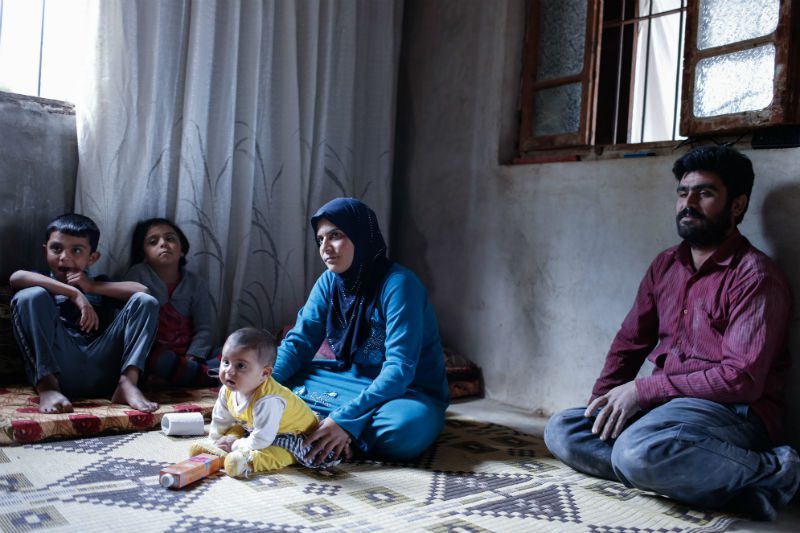
By Amy Christian, Audio-Visual Communications Coordinator, Oxfam Australia
On every trip to the field there’s always one person or one family who really touches my heart. I know as soon as I’ve met them that a little piece of me will stay with them forever. On my trip to Lebanon, late last year, it was Ayad and his wife Nawal who were etched into my memory — their faces a reminder of the thousands of people who so desperately need our help.
It was early and already getting warm in a small town near Batroun in the north of Lebanon. We had arrived at one of Oxfam’s partner’s offices to meet people receiving food vouchers as part of a distribution. Preparations were underway, voucher books at the ready and people carrying clipboards talked animatedly with each other as they checked off names. A long queue formed outside the office — people had heard about the distribution and were keen to register.
I spotted Ayad and Nawal sitting quietly with their baby girl, Farida, on two plastic chairs just inside the door. Ayad held Farida protectively and Nawal sat close rubbing the baby’s hand. I sensed that they were slightly overwhelmed by the activities and I decided to go and talk to them.
Ayad told me they had only recently arrived in Lebanon after fleeing from their home in Syria. They had been sleeping rough for several days with no food or clean water and were worried about how they were going to feed their children. Farida’s clothes were wet and Ayad explained that they had no money to buy any nappies.
I asked why they had left Syria when they did. Like so many of the Syrian families I have met, they were at pains to say they stayed as long as they could – because it was their home and they loved it. But in the end they had no choice.
One day, two of their children, Farah and Imad, were playing outside with the neighbours. One of their friends had picked up an improvised explosive device (IED) without knowing what it was. Within seconds it exploded in his hand, killing him instantly and sending shrapnel flying. One piece lodged in another friend’s body, an inch from his heart. Although Farah and Imad escaped with their lives, their legs were filled with pieces of shrapnel that are still there.
Ayad came home from work that day to find his children crawling on the floor, unable to walk. When he found out what had happened, he knew in that moment they had to leave Syria. He couldn’t bear the idea of anything else happening to his children. Nawal and the children packed up their things and began the long journey to Lebanon.
Ayad and Nawal’s story is, at once, shocking and familiar. So many children have been harmed by this brutal war. So many families have been forced to flee and so many communities have been ripped apart.
For Syrian refugees in Lebanon, the struggles continue as they search for safety and try to meet their basic needs amid dwindling resources. That’s why voucher programs like the one Oxfam runs are so vital. I was able to go with Ayad and Nawal to buy some food with their vouchers. We were able to see the immediate impact of Oxfam’s life-saving emergency work. Without those vouchers, children like Farah and Imad would be left to face another brutality — the brutality of hunger.
The scale of the Syria crisis and the breadth of work that needs to be done to assist people in a dignified way, and keep them safe, is staggering. But that day at least there were many mothers like Nawal who were able to give their children some food and go to bed knowing they would be safe and well for at least another day.
Helping the millions of victims of this terrible conflict is absolutely vital but not enough. What is needed is peace. Around the world, we have been campaigning and advocating for a sustainable, inclusive, political solution to the conflict.
Add your voice to Oxfam’s petition – Call on the Australian Government to give its fair share of funding to people caught up in this terrible crisis.
You can help Syrian refugees by donating to our Syria Crisis Appeal today.
